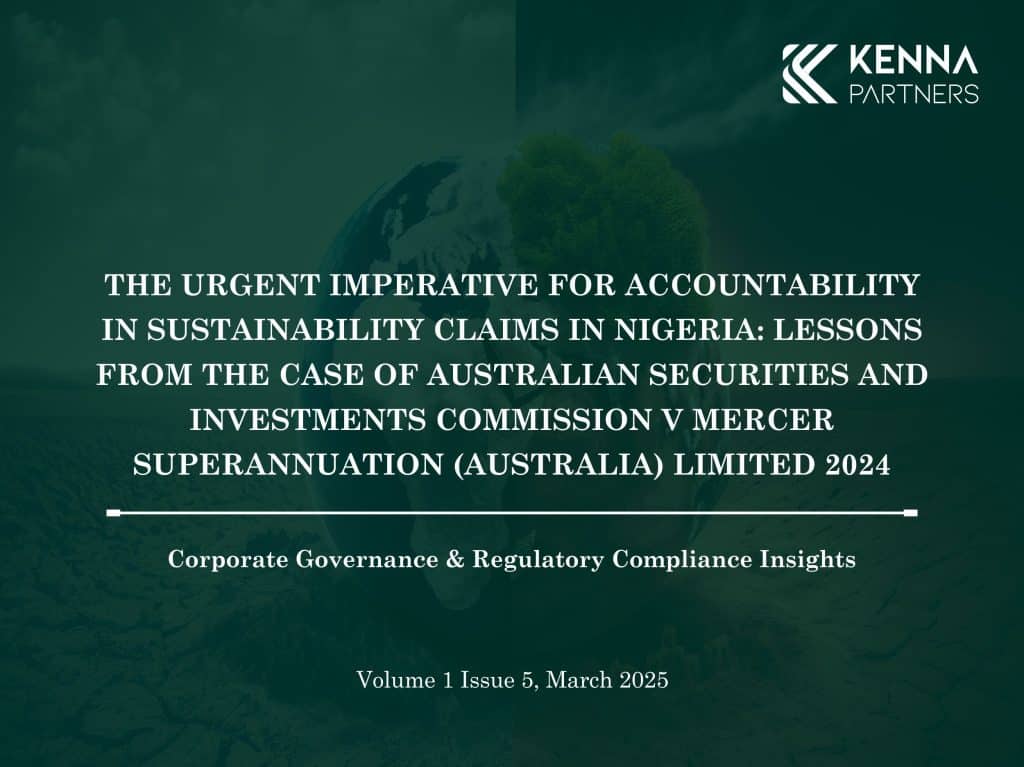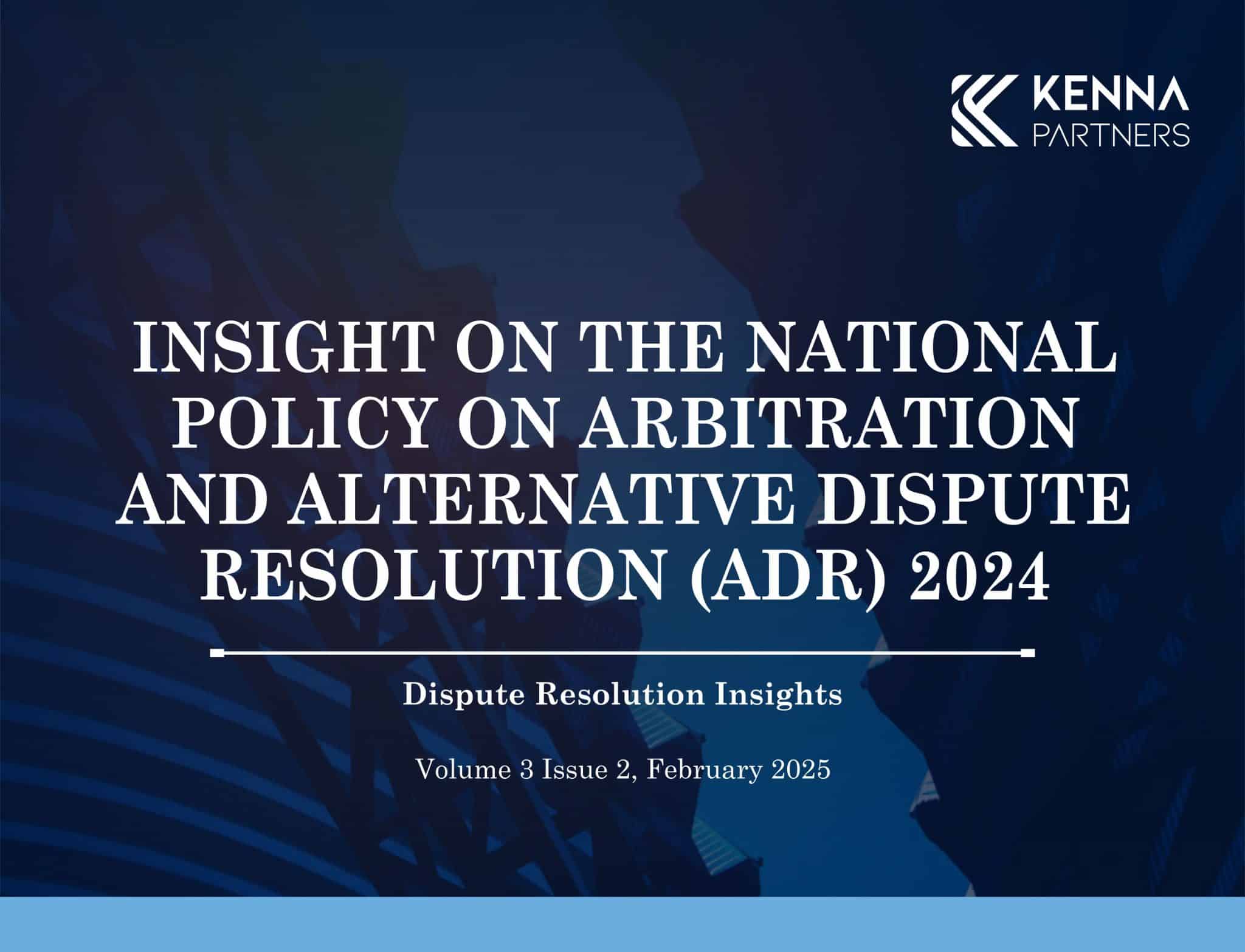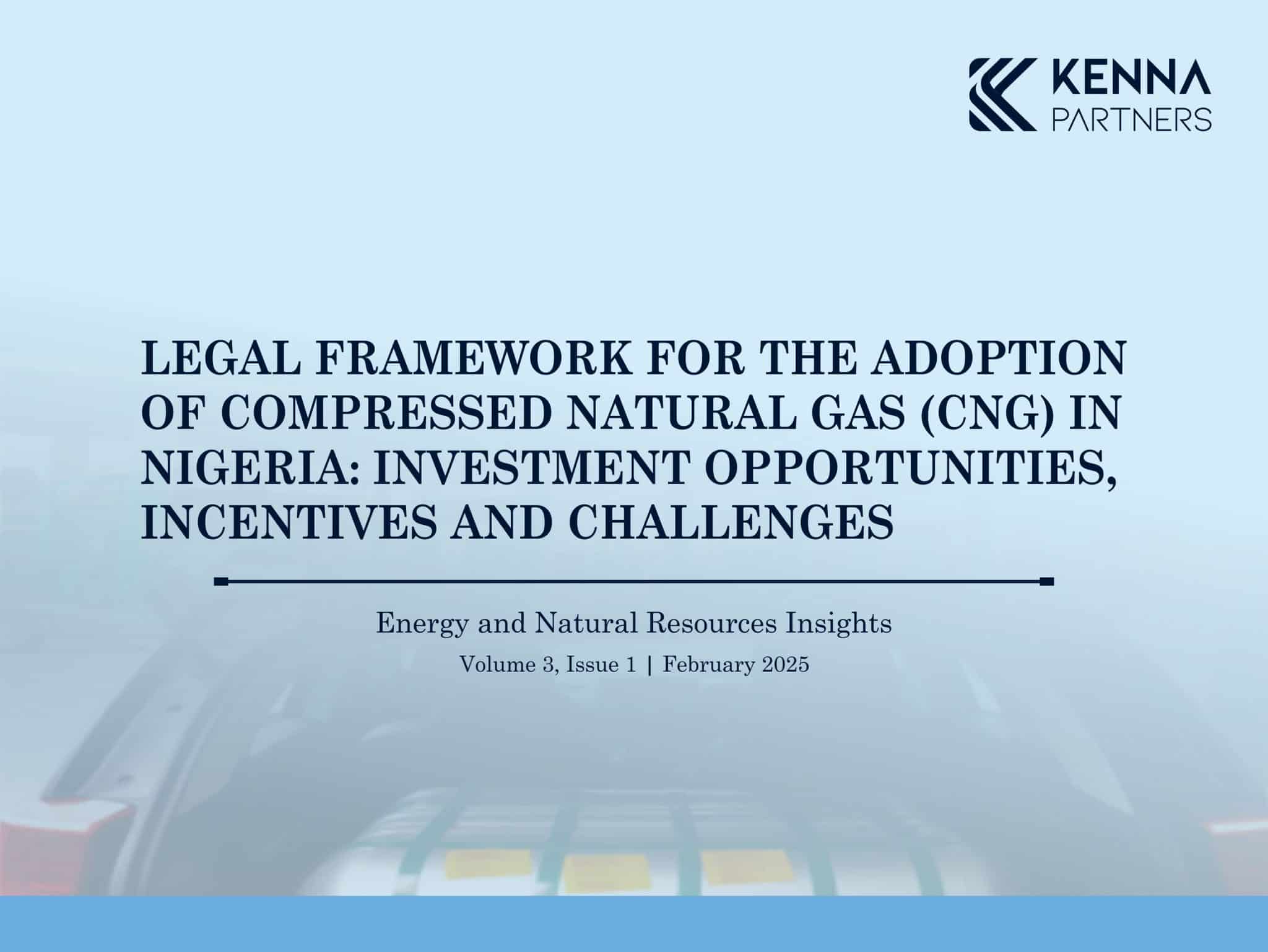The Urgent Imperative for Accountability in Sustainability Claims in Nigeria: Lessons from the Case of Australian Securities and Investments Commission v Mercer Superannuation (Australia) Limited 2024

Table of Contents
- Loading table of contents...
Introduction
In 1983, the United Nations General Assembly (UNGA) called the World Commission on Environment and Development (WCED), an international group of environmental experts, politicians, and civil servants, in response to growing concerns about ozone depletion, global warming, and other environmental issues. The group’s mission was to find solutions to the growing environmental degradation and its effects on global development, ultimately promoting sustainable development by striking a balance between environmental protection, social justice, and economic growth.
The concept of sustainability was popularised by the WCED (also known as the Brundtland Commission). Its report to the UNGA defined sustainability as “development that meets the needs of the present without compromising the ability of future generations to meet their own needs.”
Sustainability has become a global concern for organisations, with regulatory bodies strengthening oversight on environmental, social, and governance (ESG) disclosures. Many organisations have increased their efforts to ensure that their product or service is environmentally friendly or has minimal negative environmental impact. Organisations voluntarily make public statements about a product or service that highlight its positive environmental impact and ethical standards to ensure that investors and stakeholders are aware of their compliance with sustainability requirements or lifespan. These statements are referred to as sustainability claims.
Although organisations globally have improved their compliance with sustainability requirements, false sustainability claims (in various forms of greenwashing) still pose a prevalent challenge. Nigeria’s sustainability reporting legal framework has evolved over the past two decades. While significant legal actions have addressed environmental pollution and corporate accountability, enforcement mechanisms addressing false sustainability claims are still nascent. Like many other jurisdictions, Nigeria has no specific laws or regulations addressing the issues of false sustainability claims. Furthermore, there is yet to be any record of false sustainability claims being addressed/ sanctioned by the appropriate enforcement body in Nigeria.
The 2024 case of the Australian Securities and Investments Commission (ASIC) v Mercer Superannuation (Australia) Limited underscores the growing global crackdown on false sustainability claims. This case serves as a reminder of the need for Nigerian regulatory authorities to ensure organisations comply with sustainability standards and that organisations are not making public statements about their products or services to make them appear more environmentally and ethically friendly than they are.
Background of the Case
By an amended originating application dated September 13, 2023, the Australian Securities and Investments Commission (ASIC) initiated an action at the Federal Court of Australia against Mercer Superannuation (Australia) Limited (Mercer), a superannuation trustee, contending that Mercer made false or misleading representations in contravention of Section 12DB(1)(a) of the Australian Securities and Investments Commission Act 2001 (Cth) (ASIC Act) and engaged in conduct that was liable to mislead the public about their financial services in contravention of section 12DF(1) of the ASIC Act.
Section 12DB(1)(a) of the ASIC Act prohibits a person from making false or misleading statements or publications about their services being of a particular standard, quality, value or grade, and section 12DF(1) of the ASIC Act also prohibits a person from engaging in conduct that is liable to mislead the public as to the nature, characteristics, suitability for purpose or the quantity of any financial services.
Mercer’s representations, which were alleged to be misleading, were written on its website and in a video published online during four different periods from November 12, 2021, to March 1, 2023. By the said representations, Mercer claimed that its “Sustainable Plus” investment options excluded, and would continue to exclude, investments in companies involved in or deriving profit from the production or sale of alcohol, gambling, and the extraction or sale of carbon-intensive fossil fuels. These claims were found to be false as companies involved in the sale of alcohol, gambling, and the extraction or sale of carbon-intensive fossil fuels were found to have investments in Mercer’s sustainable plus investment options,
Both parties filed a statement of agreed facts and admissions dated September 19, 2023 (SAFA) under section 191 of the Evidence Act 1995 (Cth) and joint submissions on liability and relief dated November 24, 2023.
Request the insight to access the full paper.





